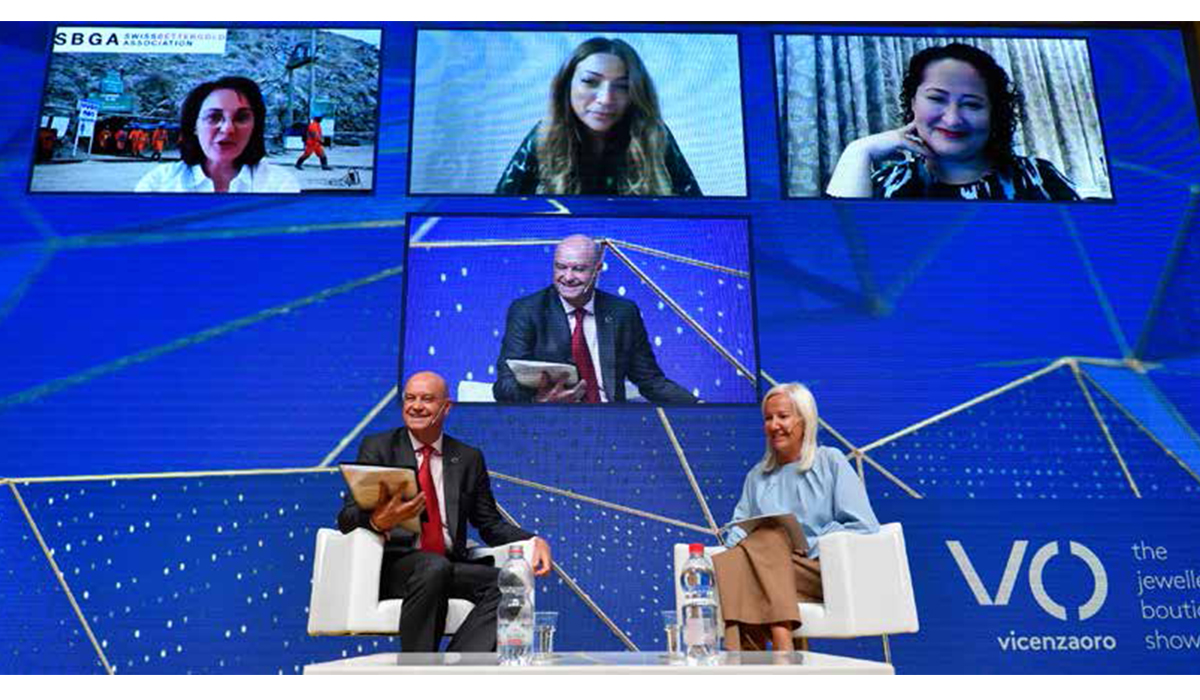Vicenzaoro September 2021: New Frontiers for Due Diligence
Environmental and social responsibility at the same time. These are the objectives that need to be achieved as soon as possible in the field of mining. Starting with an increased involvement of women in the local economy
It may sound strange, but the discussion on gender equality has now reached the mining sector. However, this surprise vanishes when one considers that most mining sites are in very poor areas of the world, in remote villages where economic survival is almost exclusively linked to this sector. Including women therefore means giving them the chance to have better living conditions and prospects. This is more or less what emerged yesterday on the third day of Vicenzaoro, during the first part of the talk dedicated to Gender Quality, organized by CIBJO, in collaboration with IEG Italian Exhibition Group, entitled "Sustainable Development Goals: Meeting Their Challenge". CIBJO moderator, Edward Johnson, introduced the four high-profile keynote speakers on stage, who, thanks to their roles, well represented all the supply chain: Iris Van der Veken, Executive Director Responsible Jewellery Council, Feriel Zerouki, Senior VP Corporate Affairs at De Beers, Diana Culillas, Secretary General for the Swiss Better Gold Association, and Cristina Maria Villegas, Director of Mining, PACT. «We are an industry that creates and sells emotions, and it is a given fact that 85% of women influence the jewelry market by shopping for themselves, their families and friends," said Van der Veken. «Recently, more and more attention has been paid to this aspect, and we have realized that companies that make gender equality a priority see their turnover increase. Talking to the female world therefore means a clear gain.» But how do you create the right opportunities for true gender equality? This question was answered by Feriel Zerouki, who got straight to the point. «This has always been a male-dominated industry but it is undeniable that a strong change is taking place, especially in mining. All diamond mining companies are working to increase the presence of women, so much so that the figure globally has reached 16% of all industry players. And when it comes to projections for the near future, at this rate of growth the goal is to reach 10,000 women employees by 2030. With De Beers, for example, we have set up numerous educational activities with schools in the mining sites, in order to overcome what still seems to be a certain diffidence towards a work environment that has little appeal for women themselves. In short, we have to start with training, to attract them and make them understand that it can be an opportunity for growth». Diana Culillas went on to explain the focus of the Swiss Better Gold Association, which supports the sustainable development of small-scale artisanal mining and establishes responsible value chains for jewelry from the beginning of the production cycle to the market. "Our association supports women, trying to undermine the conservative attitude that still characterizes this particular profession. We work closely with the miners, we explain the basics, we start with the simplest policies and on the basis of these we try to advance the figure and role of women locally. And I can proudly say that we are already seeing the first important results: there are already numerous examples of women in Health & Safety, engineering, communications... There are also many cases of companies offering equal salaries and positions. And in Peru, a country that bases a large part of its economy on mining, we are already ahead of the game: there is even a university course to train exclusively female managers and 48% of gold-related jobs are held by women». With Cristina Maria Villegas, Director of Mining, PACT, an NGO operating in 40 countries, and expert in artisanal and small-scale mining, the talk moved on from gold mining to diamond mining: «One fact that is always astonishing is that one third of diamond miners are women. Nevertheless, the situation of women in these areas is not good: about 60% of our miners have attended primary school, which means that the level of schooling for women is minimal. Very few have a personal bank account, only 3 out of 10 have a smartphone, and it is only when they get a secure job that they are able to contribute to supporting their families. More can and must be done. Because now more than ever, sustainability means environmental and social responsibility at the same time. The focus on the carbon footprint is all well and good, but let's not forget that behind these goals, people should take priority.»






